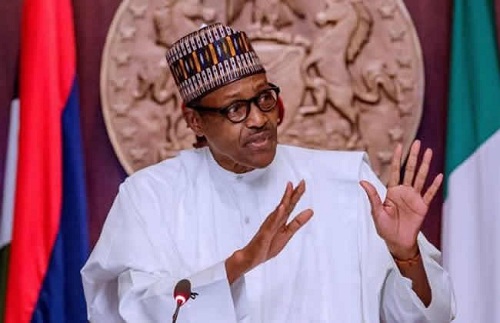This post has already been read 1247 times!
Amid nationwide protests demanding the reform of the police among others, the Presidency may have embarked on new measures to save the day and convince Nigerians that governance has not been grounded.
One of the moves is the planned reform to a new bill aimed at giving teeth to different measures to transform Nigeria’s business climate, and institutionalize the gains of interventionist programmes under the Presidential Enabling Business Environment Council (PEBEC), and reduce associated risks.
Special Adviser to the President on Ease of Doing Business, Dr. Jumoke Oduwole, gave an insight into the renewed effort to give life to the proposal via a statement issued last week.
Oduwole said part of the strategy of enhancing the business process is to enact a new law that encompasses all reforms into a single legislation.
She claimed that “Nigeria’s rating on the global scale of ease of doing business improved in 2018 and 2019” after implementing several policies to scale up reforms at both national and regional levels.
According to her, the gains were recorded after the implementation of over 140 reforms by PEBEC between 2016 and 2019.
Giving more insights into the proposed legislation, Oduwole said: “The Enabling Business Environment Secretariat (EBES), an arm of the Presidency driving the reforms, had in 2017, sought and got the approval of PEBEC to adopt an omnibus bill as a legislative tool for business climate reform in Nigeria.
“In Q4 2017, over 40 law firms from across the country supported an SBL Steering Committee ‘pro bono’ to review and categorize the submissions received, which were then distilled into a document that formed the basis of the work of the drafting team from the Ministry of Justice that resulted in the earlier version of the draft bill prepared in 2018.”
Oduwole explained that the bill will, among others, amend some provisions of the present legislative framework that have been identified by stakeholders as bottlenecks for the business climate reforms, and introduce new provisions that would accentuate business climate reforms.
She continued: “the bill is now being reopened for review and further input,” as a number of the provisions earlier included in the draft have been addressed by the Financial Act 2019, and Companies and Allied Matters Act (CAMA) 2020.
According to her, similar legislation was adopted by Georgia in 2005, when the U.S. country amended at least 30 legal documents in one swoop.
Calling for active public participation in the formulation process, the presidential aide said the deadline for filing input and suggestions is October 23, 2020.
The objective of the presentation, media aide to the Vice President, Laolu Akande, disclosed is to bring NEC up to speed on the Ministry’s goals and projects, and seek NEC’S support in the resolution of key challenges to achieving the objectives.
Akande said the Council was invited to “establish land banks in each state earmarked for investment in agriculture and agro-processing; ensure fair compensation for land, standardize and ensure clarity in compensation rates in each state; adapt the 2015 approved list of taxes and levies, and set up an investment promotion agency to facilitate investment linkages.
“MSME council should be set up in each state. These councils should build a database of the residents’ MSMEs which can be used to facilitate the integration of local MSMEs into the supply chains of large resident corporate,” the aide said.



